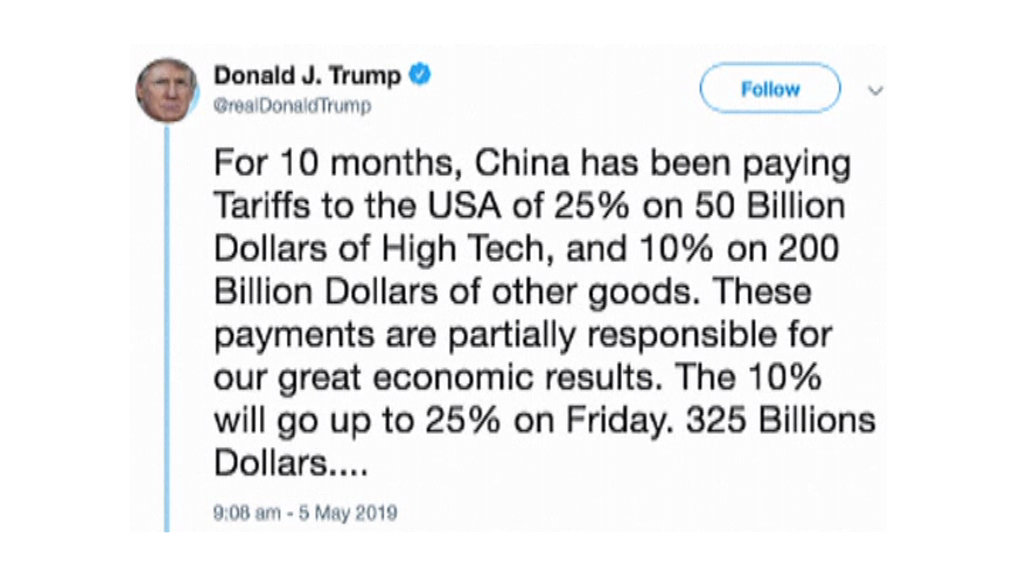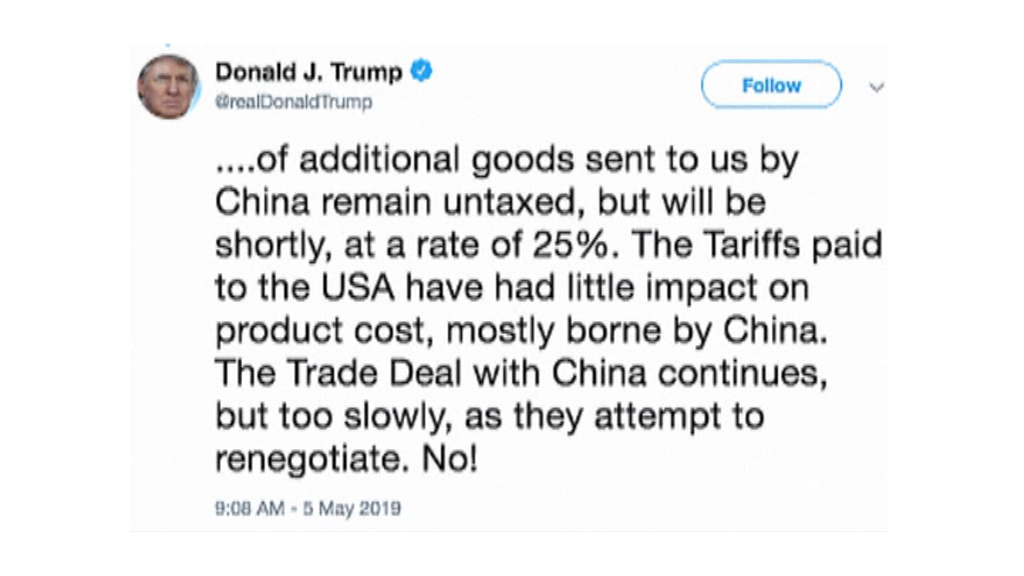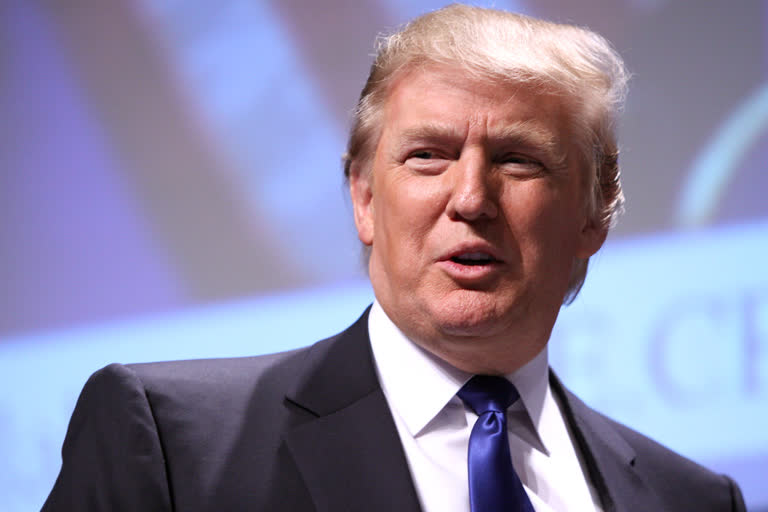Washington: President Donald Trump turned up the pressure on China on Sunday, threatening to hike tariffs on USD 200 billion worth of Chinese goods.
Trump's comments, delivered on Twitter, came as a Chinese delegation was scheduled to resume talks in Washington on Wednesday aimed at resolving a trade war that has shaken financial markets and cast gloom over the world economy.


Trump turned up the heat by saying he would raise import taxes on USD 200 billion in Chinese products to 25 per cent from 10 per cent on Friday.
He's twice pushed back deadlines — in January and March — to raise the tariffs in a bid to buy more time for a negotiated settlement.
But on Sunday, Trump, who has called himself a "tariff man," said he's losing patience.
"The Trade Deal with China continues, but too slowly, as they attempt to renegotiate. No!" Trump tweeted.
The two countries are locked in a high-stakes dispute over China's push to establish itself as a technological super power.
The US charges that China is resorting to predatory tactics — including cybertheft and forcing foreign companies to hand over technology — in a drive to establish Chinese companies as world leaders in advanced industries such as robotics and electric vehicles.
Last July, the Trump administration gradually began slapping import taxes on Chinese goods to pressure Beijing into changing its policies.
It now has imposed 10 per cent tariffs on USD 200 billion in Chinese imports and 25 per cent tariffs on another USD 50 billion.]
Read more:Indian fintech delegation explores UK market
The administration has repeatedly suggested that the negotiators are making progress.
A month ago, Trump said the two countries were "rounding the turn" and predicted that "something monumental" would be achieved in the next few weeks.
But last week, Treasury Secretary Steven Mnuchin seemed to temper expectations, suggesting that Washington was willing to "move on" if it can't get the deal it wants.
A substantive deal would require China to rethink the way it pursues its economic ambitions, abandoning or scaling back subsidies to its companies, easing up on the pressure for foreign companies to share trade secrets, and giving them more access to the Chinese market.
Philip Levy, senior fellow at the Chicago Council on Global Affairs and a White House economist under President George W Bush, said the talks are too complicated for Trump's high-pressure tactics to work.
"The president treats this like we're haggling over the price of a used car," Levy said.
The prospect of higher tariffs and heightened tensions could alarm investors when markets will open on Monday.
"When the president puts his foot down, it makes the market go down," Chris Rupkey, a chief financial economist at MUFG Union Bank, wrote in a research note Sunday.
"Tariff man is back just in time to make the stock market dive, dive, dive."



